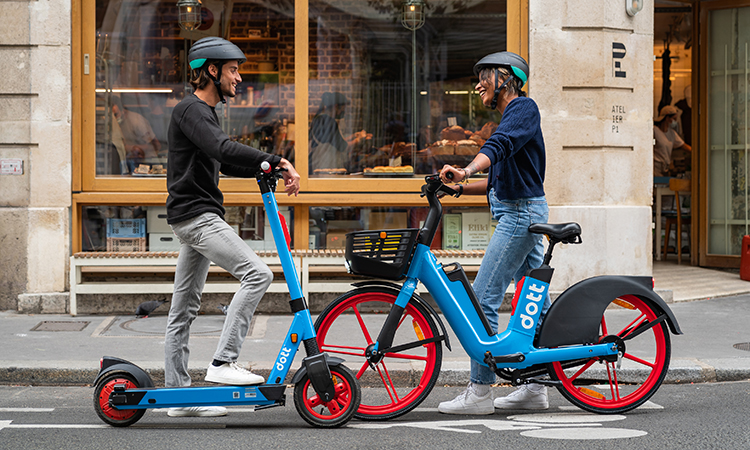When sharing the road with cars and scooters, always stay alert and follow traffic laws. Be mindful of blind spots and use hand signals when turning or changing lanes.
It’s important to maintain a safe distance and communicate your intentions to other drivers and scooter riders. By being courteous and aware of your surroundings, you can help create a safer environment for everyone on the road. Sharing the road with both cars and scooters requires attentiveness and understanding of each other’s capabilities.
We will discuss essential tips for safely navigating roads with diverse types of vehicles, ranging from cars to scooters. Whether you’re a driver or a scooter rider, knowing how to coexist harmoniously with other road users is crucial for ensuring everyone’s safety and well-being. We’ll explore best practices for maintaining a cooperative and respectful approach to sharing the road, empowering you to navigate through traffic with confidence and caution.
Understanding Road Sharing Dynamics
Importance Of Awareness Among Drivers And Riders
Drivers and riders need to be aware of each other’s presence on the road to ensure safe and efficient travel for everyone. The importance of awareness cannot be overstated, as it creates a sense of responsibility for each party. Drivers must be vigilant of scooters, while riders must be cognizant of cars, ultimately contributing to a harmonious road environment.
Common Misconceptions About Road Sharing
There are several misconceptions surrounding road sharing between cars and scooters that need to be addressed. Clarifying these misconceptions is vital for promoting understanding and reducing conflict on the road. By debunking these myths, both drivers and riders can work together to ensure a safer and more cohesive road experience.
Smart Tips For Drivers Around Scooters
Adjusting Driving Behavior Near Scooters
When driving near scooters, it’s crucial for drivers to adjust their driving behavior to ensure the safety of both themselves and the scooter riders. Always maintain a safe following distance behind scooters, giving them ample space to maneuver and react. Additionally, be mindful of their blind spots, as scooters have limited visibility, especially in heavy traffic. Adapting your driving behavior near scooters can significantly reduce the risk of accidents and ensure a safer road for everyone.
Awareness Of Scooter’s Speed And Maneuverability
Being aware of the speed and maneuverability of scooters is essential for drivers sharing the road with them. Scooters generally have lower top speeds than cars, so it’s important to anticipate their movements and accommodate their pace. Keep an eye out for sudden stops or turns, as scooters can maneuver swiftly in traffic. By being conscious of their speed and agility, drivers can proactively respond to scooter movements and minimize the likelihood of collisions.
Safe Overtaking And Lane Changing Practices
Safe overtaking and lane changing practices are paramount when sharing the road with scooters. Before overtaking a scooter, ensure there is enough space and visibility to pass safely. Signal your intentions clearly, allowing scooter riders to anticipate your maneuvers. When changing lanes, check your blind spots carefully and give ample room for scooters to maintain their course. Making decisive, calculated movements around scooters enhances overall road safety and fosters harmonious coexistence between different types of vehicles.
Scooter Riders’ Guide To Traffic Coexistence
As a scooter rider sharing the road with cars, it’s essential to understand the principles of traffic coexistence and how to navigate safely in various traffic situations. To prevent misunderstandings and ensure your visibility, there are key strategies that scooter riders should employ when sharing the road with cars. Here’s a comprehensive guide to navigating through traffic and coexisting with cars, promoting safety, and minimizing potential conflicts on the road.
How To Share The Road With Cars: Safe Positioning And Visibility
Safe positioning and visibility are crucial for scooter riders when sharing the road with cars. By adopting the following strategies, riders can ensure their presence is acknowledged by other road users:
- Maintain a visible position in the lane, away from blind spots of vehicles.
- Use bright clothing and reflective gear to enhance visibility, especially during low-light conditions.
- Position yourself further away from parked cars to avoid potential collisions caused by opening doors.
Signaling Intentions To Prevent Misunderstandings
Signaling intentions is essential for promoting clear communication with other road users. When riding a scooter, it’s important to:
- Use hand signals to indicate turns, stops, or lane changes.
- Maintain eye contact with drivers to ensure they are aware of your intentions.
- Utilize turn signals and brake lights if the scooter is equipped with them.
Navigating Through Heavy Traffic And Intersections
Navigating through heavy traffic and intersections requires attentiveness and proactive measures for safety. As a scooter rider, consider the following tips when navigating through congested areas and intersections:
- Stay attentive to surrounding vehicles and anticipate their movements to react promptly.
- Choose a strategic lane positioning to enhance visibility and minimize the risk of being overlooked by drivers.
- When approaching intersections, scan for potential hazards and make eye contact with drivers to ensure they see you before proceeding.

Credit: www.intelligenttransport.com
Anticipating Hazards In Urban Traffic
When sharing the road with both cars and scooters in urban traffic, it’s crucial for both car drivers and scooter riders to anticipate potential hazards. Being aware of danger zones and employing proactive strategies can help prevent collisions and ensure the safety of all road users.
Recognizing Potential Danger Zones For Scooters
Recognizing potential danger zones for scooters is essential for both scooter riders and car drivers. Some common danger zones for scooters include:
- Intersections: Scooters are particularly vulnerable at intersections due to the complexity of traffic movements and the potential for right-of-way conflicts.
- Blind spots: Scooters can easily disappear from a car driver’s view in blind spots, increasing the risk of a collision if proper caution is not exercised.
- Uneven road surfaces: Potholes, road debris, and uneven surfaces pose a higher risk to scooters than to cars. Sudden maneuvers may pose danger to scooter riders.
- Dooring zones: When parked cars open their doors without checking for approaching scooters, it can lead to severe accidents.
Strategies For Car Drivers To Prevent Collisions With Scooters
To minimize the risk of collisions with scooters, car drivers should consider the following strategies:
- Maintain a safe following distance from scooters to provide ample reaction time in case of sudden maneuvers.
- Check blind spots before changing lanes or making turns, as scooters can easily go unnoticed in these areas.
- Be mindful at intersections and look out for scooters approaching from different directions, especially when making right turns.
- Avoid sudden stops or swerves that may catch scooter riders off guard.
- Give ample space when passing scooters, ensuring a safe distance to prevent the risk of side-swiping or encroaching on their space.
Mutual Respect: The Foundation Of Road Sharing
Sharing the road with cars and scooters requires mutual respect and understanding. Both car drivers and scooter riders have legal responsibilities and should strive to encourage a culture of respect and patience on the road. By adhering to these principles, we can create safer and more harmonious road sharing experiences for everyone.
Legal Responsibilities Of Car Drivers And Scooter Riders
Car drivers and scooter riders must be aware of their respective legal responsibilities to ensure safe sharing of the road. It is imperative for car drivers to give scooters adequate space and to be mindful of their presence. Similarly, scooter riders must adhere to all traffic laws and signals, ensuring they do not compromise the safety of themselves or others on the road.
Encouraging A Culture Of Respect And Patience On The Road
- Use turn signals: Signaling your intentions allows other road users, including scooters, to anticipate your next move, promoting a safer environment for all.
- Maintain safe distances: Cars and scooters should maintain a safe distance from each other to prevent accidents and create a sense of mutual respect.
- Practice patience: Patience is key when sharing the road with others. Both car drivers and scooter riders should practice understanding and patience, especially in heavy traffic or congested areas.
Frequently Asked Questions Of How To Share The Road With Car And Scooter
How Can I Safely Share The Road With Scooters And Cars?
To safely share the road, always be aware of your surroundings, use your signals, and give scooters and cars plenty of space. Treat them as you would any other vehicle on the road, and always follow traffic laws. Being courteous and vigilant is key to road safety.
What Are The Important Road Etiquettes For Sharing With Scooters?
Key etiquettes include being patient, giving space, avoiding sudden movements, and communicating your intentions clearly. Understanding and respecting the rights of all road users is crucial for a harmonious and safe coexistence.
Why Is It Essential To Be Cautious Around Scooters On The Road?
Scooters are smaller and not as visible as cars, making them more vulnerable. It’s crucial to be extra cautious and attentive to prevent accidents and ensure the safety of everyone on the road. Respecting their presence is vital for a safe journey.
Conclusion
As we strive for safer roads, it’s crucial to embrace a shared responsibility between car and scooter riders. By understanding traffic laws, respecting each other’s space, and practicing patience, we can navigate roads harmoniously. Let’s prioritize safety and cooperation to create a more inclusive and secure transportation environment for all.
